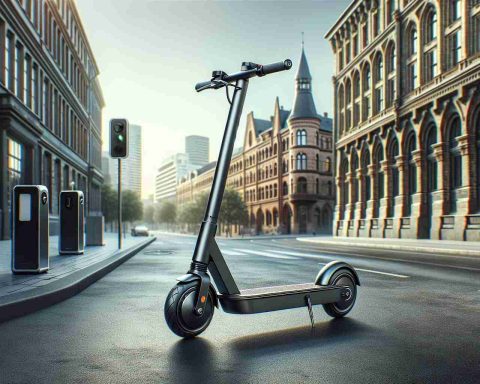Californians, it’s time to ditch your cars for a healthier commute! Starting December 18, low-income residents can apply for vouchers to help purchase e-bikes, making green transport more accessible.
In a progressive move to foster eco-friendly travel, California is introducing an innovative e-bike incentive initiative aimed at those in need. This program offers a tiered voucher system to promote the use of electric bicycles across communities.
Individuals with an annual income under 300% of the Federal Poverty Level (FPL) can qualify for a $1,750 voucher. For those earning less than 225% of the FPL or residing in designated lower-income areas, the voucher increases to $2,000. With a budget of approximately $31 million, about $3 million will be available in the initial application round with 1,500 vouchers up for grabs.
Applications will be processed on a first-come, first-served basis, so it’s crucial to apply right at 6 p.m. upon openings. Once granted, these vouchers can be used exclusively at participating retailers for class 1, 2, and 3 e-bikes, as well as essential accessories like helmets. Purchases must occur within 45 days or can be extended upon request.
Participants must retain their e-bikes for at least a year or face some repayment unless extenuating circumstances arise. Local businesses are keen on the initiative, viewing it as a step forward for city mobility and accessibility.
Bid Farewell to Your Car: California’s E-Bike Voucher Program Revolutionizes Green Commuting!
Introduction to California’s E-Bike Initiative
California is setting a precedent in sustainable transport with its new e-bike voucher program targeting low-income residents. Launching on December 18, this initiative aims to make eco-friendly transportation both accessible and affordable, while encouraging healthier commuting options for residents.
How the E-Bike Voucher Program Works
This innovative program features a tiered voucher system designed to assist individuals based on their income levels:
– $1,750 Voucher: Available for individuals with an annual income up to 300% of the Federal Poverty Level (FPL).
– $2,000 Voucher: Offered to those earning less than 225% of the FPL or living in specified low-income areas.
With a robust budget of approximately $31 million, California is set to distribute about $3 million in the initial round, providing 1,500 vouchers to qualifying applicants.
Application Process
The application process will operate on a first-come, first-served basis. Interested individuals are advised to apply right at 6 p.m. when applications open to secure their vouchers. Once approved, these can be utilized at participating retailers for the purchase of:
– Class 1, 2, and 3 e-bikes
– Essential accessories such as helmets
After receiving their vouchers, participants must complete purchases within 45 days, though extensions are possible upon request.
Benefits and Local Economic Impact
Beyond promoting green commuting, this e-bike initiative is expected to positively impact local businesses. Store owners view it as an opportunity to boost sales and improve accessibility throughout the community. The influx of e-bike users can lead to reduced traffic congestion and lower emissions, fostering a cleaner environment.
Key Considerations for Participants
Participants in the program will need to retain their e-bikes for a minimum of one year. In cases where individuals fail to do so, repayment may be required unless there are extenuating circumstances. This clause aims to ensure the longevity of the program and the continued use of e-bikes as a viable transport option.
Pros and Cons of the Program
Pros:
– Affordable access to e-bikes for low-income residents
– Promotion of healthier lifestyles through reduced car usage
– Economic benefits for local retailers
Cons:
– Limited number of vouchers may lead to cut-throat competition during the application process
– Repayment requirement may deter some potential users
Future Insights and Predictions
Experts predict that California’s initiative could pave the way for similar programs in other states, enhancing the national push for sustainable transportation. As e-bike technology continues to innovate and improve, the market is likely to see an increase in both the variety and availability of electric bicycles, not just in California but across the nation.
Conclusion
California’s e-bike voucher program stands as a significant leap towards sustainable living and improved health for its residents. By breaking down financial barriers, it promises to open new avenues for eco-friendly commuting and foster a culture of conscious transportation.
For more information on California’s green initiatives, you can visit the California government website.


















